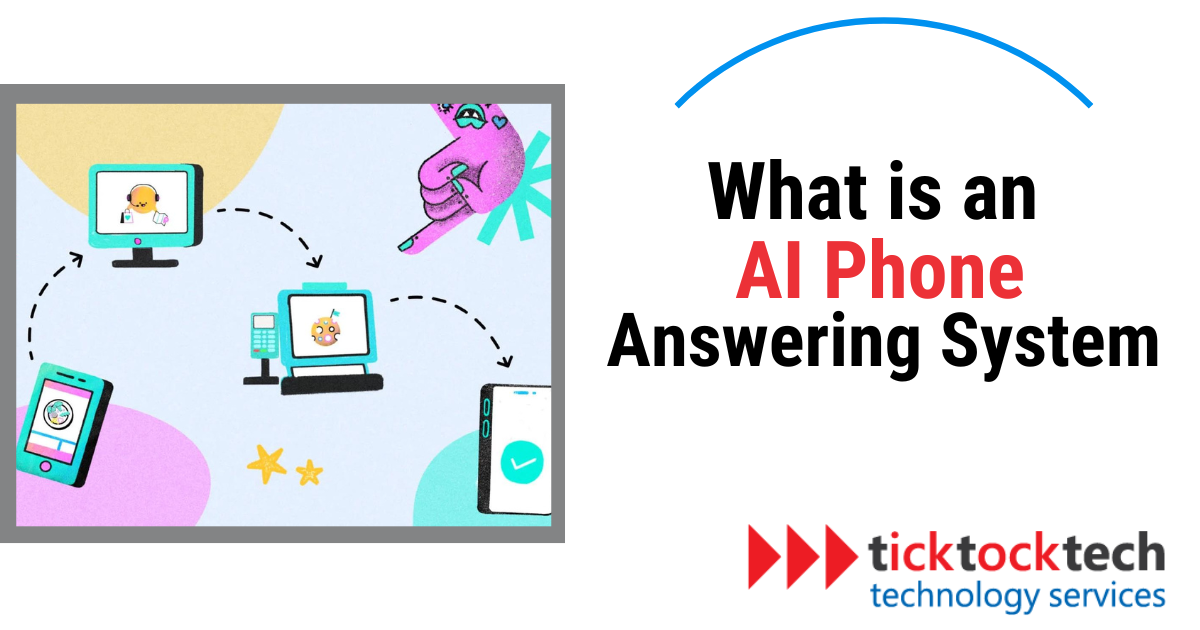As a business that regularly handles a high volume of calls, you’re well aware of the challenges that come with busy days. Fortunately, the advancements in artificial intelligence (AI) now provide a helpful solution to lighten your workload.
What is an AI phone answering service?
An AI answering service is a voice bot technology, similar to chatbots, that allows humans to interact via voice or phone calls. It utilizes context-based interpretation and response to address customer inquiries.
Unlike traditional auto attendants or IVR systems, these AI systems utilize contextual understanding to interpret and respond to customer queries more accurately. They continuously learn and refine their responses based on the data gathered from interactions.
In contrast to general-purpose voice assistants like Alexa or Siri, AI answering services are specifically trained on knowledge relevant to a company’s products, services, and customer needs. This specialized focus allows the AI to provide relevant information to callers.
How does an AI phone answering service work?
An AI answering service works by utilizing advanced technology to provide automated responses to customer inquiries. Here’s how it works:
1. Training with Data
The process begins with feeding the AI system with relevant data, including previous customer interactions, company information, and other content. This data helps the AI recognize patterns and understand customer inquiries for better responses. Large language models like ChatGPT are also used to provide universal data, but you don’t need to worry about setting it up.
2. Predicting Customer Intent
The AI answering system resolves customer needs by understanding their requests and intent. It works similarly to a human agent, asking probing questions, analyzing past issues, and providing responses. The AI extracts intent and meaning from conversations to solve the customer’s problem.
3. Continuous Improvement through Machine Learning
The key to an efficient AI answering service is continuous improvement. As it interacts with customers, it gathers new data and learns from its past interactions through machine learning. This enables the system to refine its responses and provide better customer experiences.
What are the pros and cons of an AI phone answering service?
Now that you understand the fundamentals of an AI answering service, let’s examine the pros and cons of this technology. This will help you determine if it aligns with the needs and goals of your business.
Advantages of an AI answering service
AI answering services offer numerous benefits for both customers and businesses. Let’s explore a few key advantages:
- 24/7 Availability: Providing around-the-clock customer support can be costly for businesses. However, with an AI answering service, you can offer out-of-hours support without breaking the bank. This cost-effective solution ensures that customers receive support whenever they need it.
- Boosting Productivity: As AI technology advances, it can take on more tasks, such as appointment booking, answering customer queries, and data entry. This frees up valuable time for your employees to focus on their core responsibilities, increasing overall productivity.
- Efficient Customer Service: Customers hate being kept on hold. With an AI service, all calls are answered immediately. This efficient service ensures that customers are dealt with promptly, without having to wait for an available agent.
- Consistency Guaranteed: Consistency is a major challenge in customer service, often due to multitasking agents. An AI answering service can handle multiple calls simultaneously, providing the same accurate answer every time, aligned with your brand guidelines.
Disadvantages of an AI answering service
While AI phone services offer many benefits, there are also some limitations to be aware of:
- Lack of Human Touch: AI can answer most customer queries, but sometimes, a human touch is necessary. Human agents can resolve complex issues and provide empathy, leading to a better user experience.
- Time-Consuming Information Gathering: If you don’t provide sufficient information to the AI system from the start, it can take a long time to recognize multiple scenarios and understand customer intent. This can lead to delayed responses and inaccuracies.
- Limited Knowledge: AI services are only as good as the information they’ve been programmed with. If a customer asks a question that hasn’t been programmed into the system, the AI won’t know the answer. In contrast, human agents can contact the business to clarify and provide a solution.
Conclusion
When considering call answering solutions, you must consider the pros and cons of AI-powered systems versus traditional human-operated services. While AI bots can engage in conversations, the crucial question is whether they can truly match the capabilities of human receptionists. Customers may prefer speaking to a real person rather than an AI system. AI answering services can be cost-effective, but they may struggle with complexities that fall outside their programmed knowledge base. In contrast, human-based services can provide more personalized and empathetic support. However, AI systems excel at simple, repetitive tasks like appointment booking and call forwarding. This frees up human agents to focus on more complex customer interactions that require emotional intelligence and problem-solving skills.

